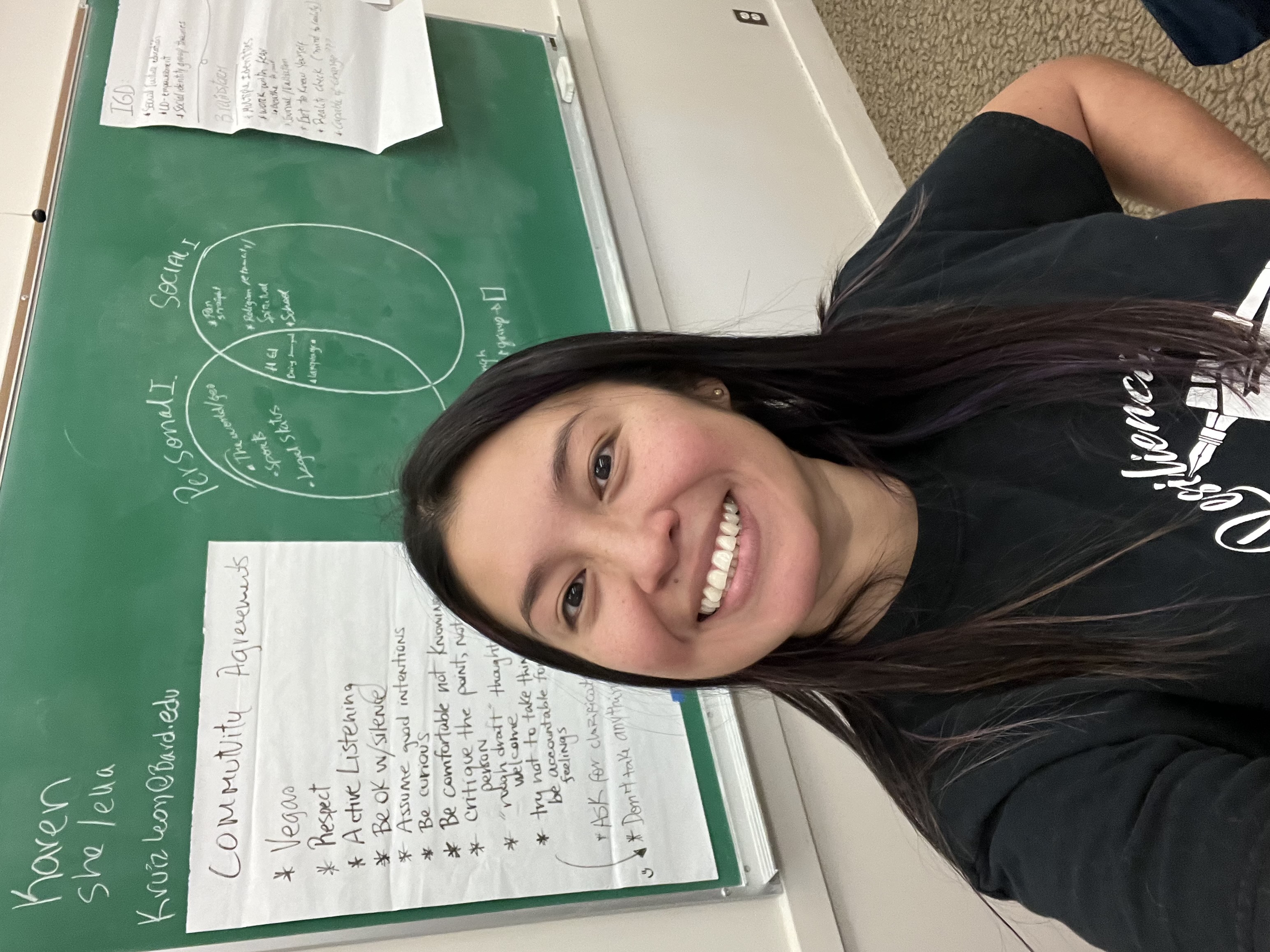Cultura y noticias hispanas del Valle del Hudson

Karen ran an intersectionality session during the Bard MLK day of engagement this January 2023.
Intersectionality
Por Karen Ruiz León
March 2023This term has been "trendy" for a few years, but lately, it has been used more often in our culture. Understanding the term can help us conceive that we are much more than “what” we see in the mirror.
Where did intersectionality come from?
The term "intersectionality" was coined in 1989 by American Kimberlé Williams Crenshaw, a renowned civil rights advocate, academic leader of Critical Race Theory (CRT), and current law professor at Columbia University Law School in New York.What is intersectionality?
According to Crenshaw, it is "the study of overlapping social identities and related systems of oppression, domination, or discrimination."How does intersectionality manifest in my life as a Latina woman?
I am going to share a little about myself to try to visualize a version of the thousands that exist on intersectionality.At birth, I was assigned the female gender at the hospital. That gender matches my sexual orientation which is heterosexual/straight and my sexual identification, which is female. In other words, it is easy to classify me in the binary system of being a man or a woman.
I was born and raised in Guayaquil, Ecuador. I consider myself an ethnic cocktail since my ancestors are indigenous and European. When I fill out demographic forms, I always choose Hispanic or Latino ethnicity and I refuse to select the white box because I don't consider myself part of it. In fact, my ancestors were immigrants and so am I, having moved and lived in a country where I was not born.
Even though my native language is Spanish, when people see my face, they think that I speak Mandarin or Cantonese because my eyes are almond shape since I am also of Chinese descent, and I am a little taller than the average height of the Ecuadorian woman.
Not to mention the pigmentation of my skin, which changes depending on how exposed I am to the sun, which contributes to some people thinking that I am Korean if I am very pale, Filipino if I am tanned, or Native American if my complexion becomes darker. Comically, when I wear my large hoop earrings, I am automatically identified as Latina.
And so, why does intersectionality matter or how does that affect my life?
The intersection of my social identities could fill me with privileges or make me a victim of oppression and at the same time, I am also part of that cycle. This is how it goes…I am an Ecuadorian and US citizen, which allows me to have legal rights and responsibilities in both countries. In the United States, being "American" allows me to have a Social Security number to work in peace since I have papers. It also gives me access to an identification document such as a gringo passport, which opens many doors for me. Also, having dual citizenship gives me access as a college student to apply for federal financial aid, as well as public health care.
Since I have privileges in this country, I have also been able to be a part of and work with coalitions, community groups, organizations, and local politicians to help eradicate racism in the Latino and immigrant communities.
Note that not everything is rosy! With the arrival of the COVID-19 pandemic, there were many cases of hatred and racism toward Asian people. On some occasion, someone told me that because of "my people" (meaning the Chinese) the entire planet was going to die. At another time they told me not to be a "dirty Chinese" and to stop eating bats. Anyway…
Overall, it's very fascinating to be a chameleon and see people's reactions to me, but we shouldn't judge a book by its cover. So, I hope that this menu of some of the experiences of my social identities helps you understand a bit that the perception that people have of me changes depending on how I look or, better said, how they see me which ends up influencing them, and the positionality I have within society.
How does intersectionality show up in their lives and what do they do with it, do they use it to benefit themselves? To oppress? Or to advocate for others? Write to [email protected] and make your voice heard!
* Karen is currently pursuing a master's in higher education and certification in social justice at the University of Massachusetts Amherst.
References and resources:
https://researchguides.library.syr.edu/fys101/intersectionality
https://justassociates.org/es/ideas-clave/la-interseccionalidad/
back to top
COPYRIGHT 2023
La Voz, Cultura y noticias hispanas del Valle de Hudson
Comments | |
| Sorry, there are no comments at this time. |

